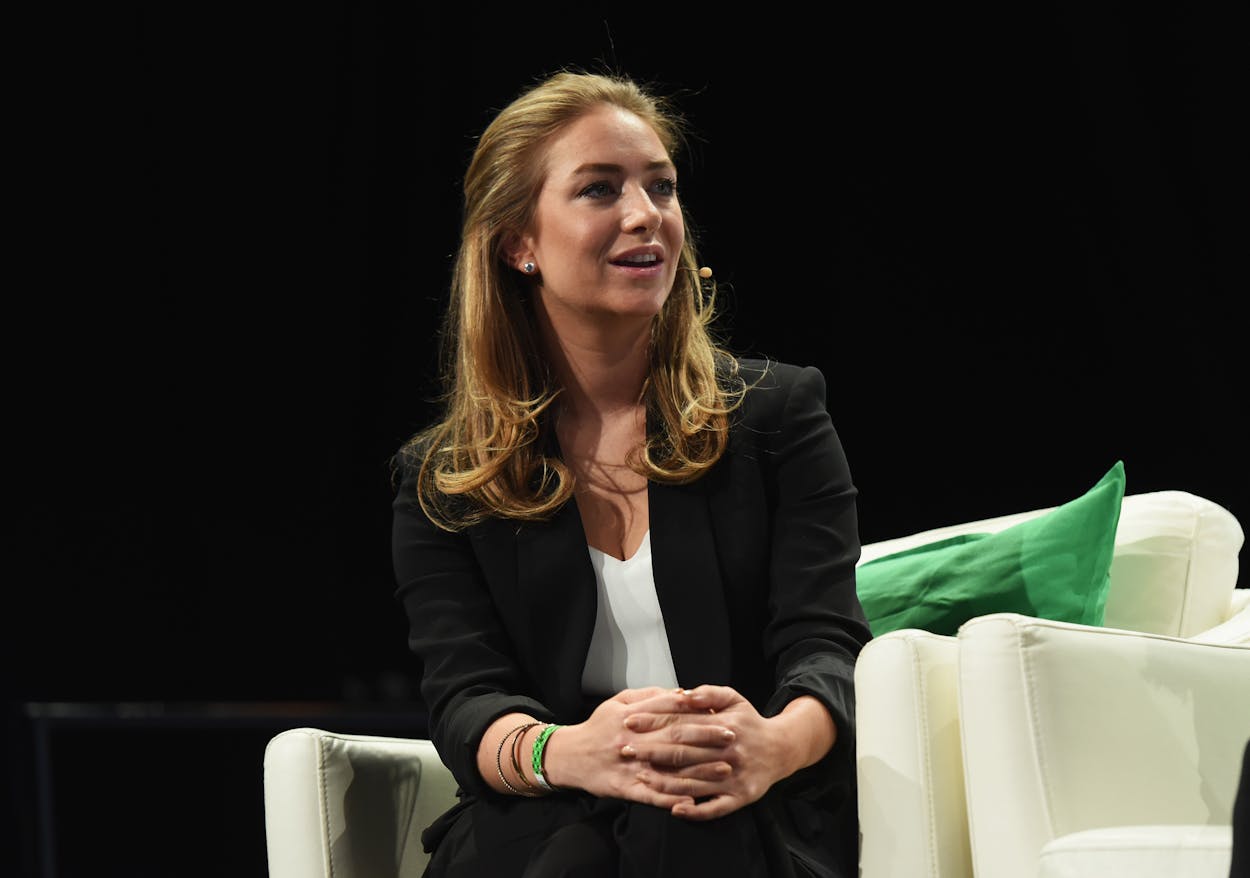Whitney Wolfe, the founder and CEO of the the Austin-based dating app Bumble, has always wanted to provide safe online spaces for women. Her app distinguished itself from similar products in the sometimes predatory line of mobile-based dating by requiring that women, rather than men, make the first move. At a Monday morning Q&A on SXSW’s interactive track called “The Future of Connection,” Wolfe told the audience that she launched Bumble after leaving dating giant Tinder because she wanted women to feel “comfortable, confident, and empowered.” “Why can’t we make it Sadie Hawkins day everyday?” she wondered aloud.
Now that Bumble has been such a monumental success—moderator Julia Boorstin noted that the app has had 12.5 million registrations in a little over two years—Wolfe says she wants the app to be a “hub of connections.” She wants women to be in control of all the relationships they build, whether they be romantic (the original Bumble), platonic (friend-finding offshoot Bumble BFF) or professional (the-soon-to-be-released Bumble Biz). Wolfe aims for Bumble to be the inverse of Facebook. “Facebook is really good at connecting you to people you know,” she said. “We want to connect you to people you don’t know.”
Wolfe also rolled out plans to soon expand from digital to physical spaces. The company plans to open a number of what Wolfe calls “social hives,” physical locations that serve as a meeting place for Bumble connections. Wolfe says that each social hive will not only be a safe place to meet a match,” but users can also use it as a co-working space, and they can meet with a BFF connection to attend one the workshops the company plans to offer. “I feel like it was a natural expansion of our brand,” Wolfe said. “People wanted a tangible connection to the brand.”
Part of Bumble’s company culture hinges on its location in Austin. In the Q&A, Wolfe compared pressure of Silicon Valley to the chaos of activity during SXSW. “In Silicon Valley you’re under constant pressure to do something or to be somewhere,” said Wolfe. In Austin, Wolfe’s team “doesn’t feel the pressure to leave work and go to all of these networking events.” “It’s given us a leg up because we’re not always focused on the opportunity to keep up with the Joneses,” she said.
But locale isn’t the only unique thing about bumble—Wolfe is a female CEO in world still dominated by men. She said she hasn’t experienced too much discrimination, though. “I’ve been very fortunate in that the numbers speak for themselves,” said Wolfe. Though she did tell the audience that “I’ve had a lot of men say to me, ‘Wow, you’re actually smarter than I thought you’d be,’” which elicited laughter throughout the conference room.
Wolfe sees a lot of growth in Bumble’s future. Not only have they expanded beyond dating to platonic and professional platforms, but the company has recently hired marketing teams across the world. Acquiring international operations has taught Wolfe how much other cultures rely on the male-dominated dating model. Female users in France told her they like it when men chase them, though Wolfe says they responded well to the opportunity to make the first move.
Though Bumble has long been focused on a heteronormative relationships, the app is fully set up for the LGBTQ community and for relationships of all types. “The only difference is anyone in a same sex match can make the first move,” Wolfe said, noting that the company recently invested in Chappy, a new LGBTQ dating app.








